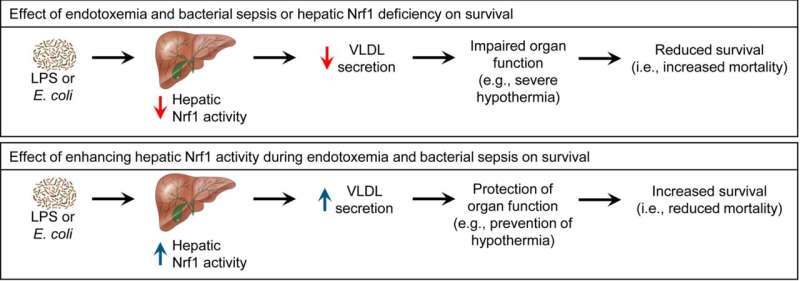Sepsis is the number one cause of death in the intensive care unit of hospitals worldwide and a major concern for health scientists and medical professionals alike.
Dr. Scott Widenmaier (Ph.D.), an associate professor in the Department of Anatomy, Physiology and Pharmacology in USask’s College of Medicine, has zeroed in on a specific protein that might be key to helping the body fight back against the potentially life-threatening condition.
By manipulating this protein, researchers believe there is a new avenue to protect patients against sepsis. Widenmaier and his team have recently published their research in Cellular and Molecular Gastroenterology and Hepatology.
“Sepsis is the largest cause of death in the intensive care unit globally,” Widenmaier said. “Sepsis can cause damage to organs like the heart, kidney, and lungs. It can also cause liver dysfunction, and when this occurs, the liver is not able to properly perform its functions that are useful in helping the body deal with an infection.”

